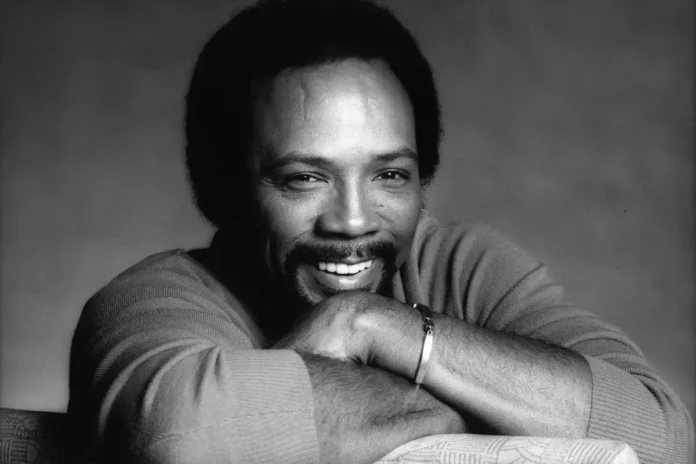At age 91, Quincy Jones dies, a giant of the entertainment world and a master of music.
Throughout a successful career spanning over 70 years, Jones made a name for himself as a talented artist and a power behind the scenes.
Table of Contents
A Legacy in Music and Entertainment: Quincy Jones Dies at 91
According to his publicist, Quincy Jones, a giant of the entertainment world and a master of American music, has passed away. He made iconic records, inspired almost every popular genre, and received a record 80 Grammy Award nominations.
He was 91.
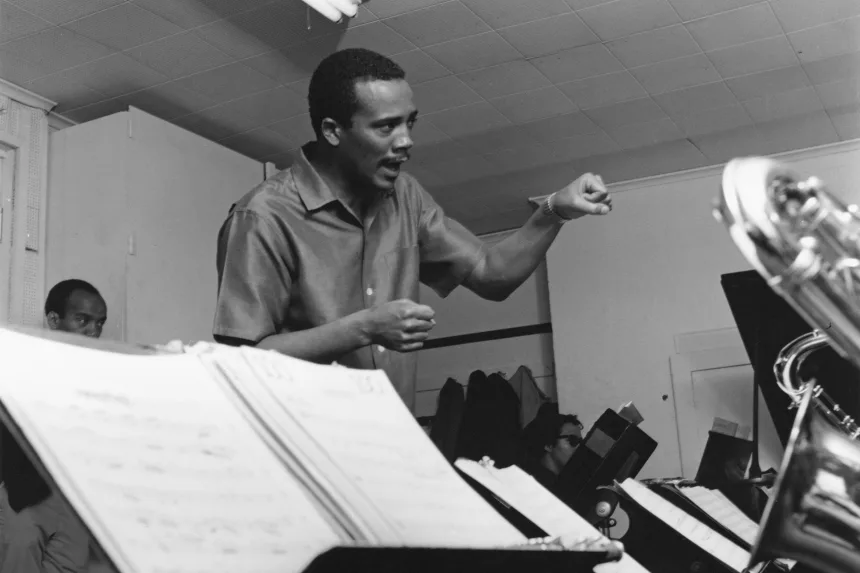
According to his spokesman Arnold Robinson, Jones “passed away peacefully” on Sunday night at his Bel Air home, surrounded by his loved ones.
“We must break the news of our father and brother Quincy Jones’ demise tonight with hearts full yet devastated. “We celebrate the wonderful life he led and know there will never be another like him, even though this is an incredible loss for our family,” his family wrote in a statement.
As an arranger, composer, lyricist, and singer, Jones built a solid reputation as a behind-the-scenes power and a talented musician in his own right throughout the course of a fruitful career that lasted more than 70 years.
He collaborated intimately with some of the most renowned artists in the American songbook, including Frank Sinatra, Aretha Franklin, Paul Simon, Dinah Washington, and Count Basie. He left lasting impressions on jazz, pop, hip-hop, and scores of movie and television soundtracks.
His status as a hitmaker and media tycoon was strengthened by his production of Michael Jackson’s hit album “Thriller,” Steven Spielberg’s version of “The Color Purple,” and the NBC comedy “The Fresh Prince of Bel-Air.”
Early Life and Breakthrough
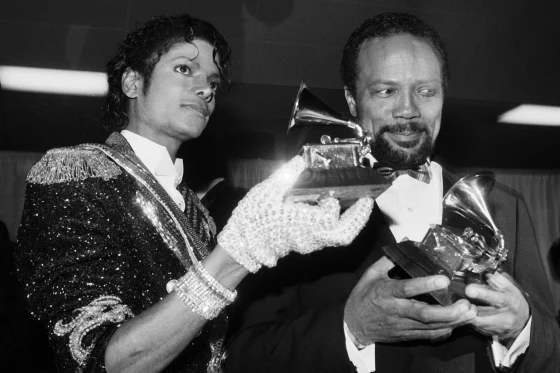
Jones was recognized at the John F. Kennedy Center Honors in 2001, awarded a National Medal of Arts by President Barack Obama in 2010, and inducted into the Rock & Roll Hall of Fame in 2013, among many other honors and recognitions. He became one of the first three “foundational inductees” on the Black Music & Entertainment Walk of Fame in Atlanta in 2021, together with Otis Redding and James Brown.
In his speech, Obama said, “He is a master inventor of musical hybrids, combining pop, soul, hip-hop, jazz, classical, African, and Brazilian music into many dazzling fusions, traversing virtually every medium, including records, live performances, movies, and television.”
Jones is second on the list of all-time Grammy winners with 28 wins. He won the Jean Hersholt Humanitarian Award at the 1994 Oscars after winning an Emmy in 1977 for penning the theme for the first episode of the miniseries “Roots.”
The son of Quincy Delight Jones, a carpenter and semiprofessional baseball player, and Sarah Frances, a bank officer and apartment complex manager, Quincy Delight Jones Jr. was born in Chicago on March 14, 1933.
Jones’s mother, who performed religious hymns, introduced him to music. Jones’ parents finally got divorced, and his father got married again after she had a psychotic breakdown.
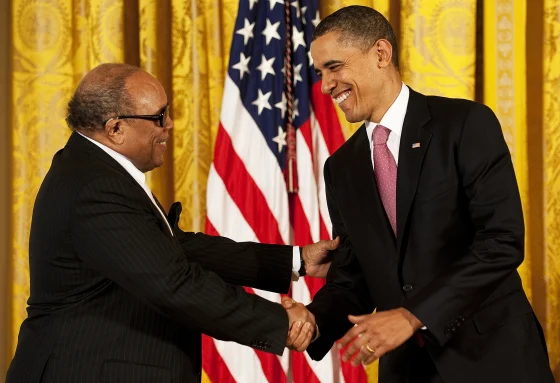
Jones and his family moved to Bremerton, Washington, in the early 1940s, where he learned the trumpet and worked with Ray Charles, a young pianist and vocalist who reportedly encouraged Jones to follow his passion for music.
In the 1950s, Jones attended the esteemed Schillinger House (now the Berklee College of Music) in Boston for a limited period of time. He subsequently began playing trumpet and arranging for the jazz legend Lionel Hampton’s tour.
He eventually gained recognition as a talented independent arranger. He collaborated with a number of jazz greats, including Dinah Washington, Oscar Pettiford, Clifford Brown, Gigi Gryce (later known as Basheer Qusim), Cannonball Adderley, and Count Basie.
In 1956, he went on a Middle East and South American tour with Dizzy Gillespie’s big band and made his debut album as a bandleader.
After a stint with the Paris-based Barclay record company, he led an all-star big band for the European run of Harold Arlen’s two-act “blues opera,” “Free and Easy.”
In 1961, Jones came back to the United States and joined Mercury Records as an artists-and-repertoire director. He became one of the first Black Americans to hold an executive-level position at a major U.S. record label when he was promoted to vice president three years later.
In addition to producing and arranging recordings, Jones became a popular film composer in the 1960s, first composing the music for Sidney Lumet’s “The Pawnbroker,” then Norman Jewison’s “In the Heat of the Night,” and Richard Brooks’ “In Cold Blood.”
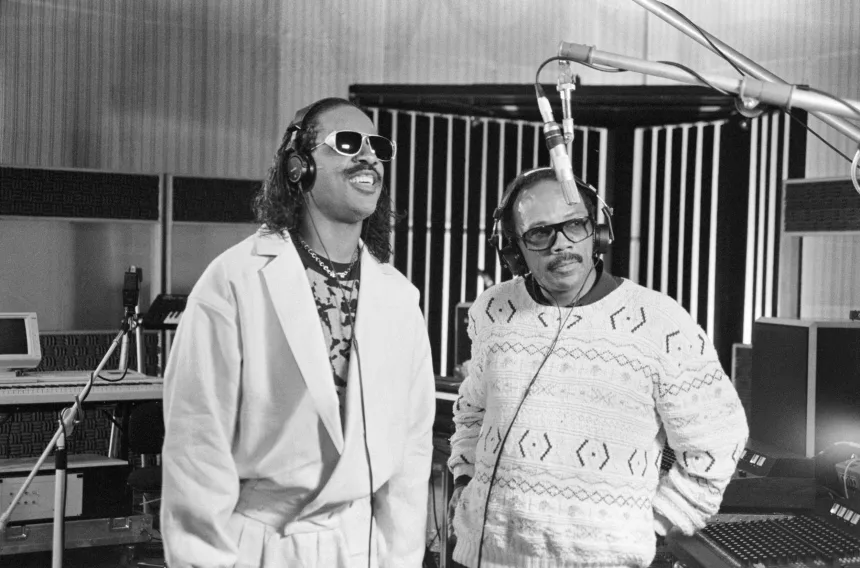
He later composed sleek, fashionable music for the 1969 original version of “The Italian Job,” the satirical dramedy “Bob & Carol & Ted & Alice,” the thriller “The Getaway” starring Steve McQueen, and the Robert Redford comedy “The Hot Rock.”
After that, Jones worked for the A&M record label from 1969 to 1981, taking a short break in 1974 to recover from a brain aneurysm.
It was thought that Jones’ health was so bad that his friends and family started making arrangements for his death. Eventually, he joined singer Marvin Gaye, comedian Richard Pryor, and actor Sidney Poitier for his own burial ceremony.
Honors and Personal Life: Quincy Jones Dies at 91
Jones established his own record label, Qwest Productions, in 1975 and signed British musicians New Order and Patti Austin. He created the music for Lumet’s film musical “The Wiz,” which was a reworking of “The Wizard of Oz” and starred Jackson and Diana Ross, three years later.
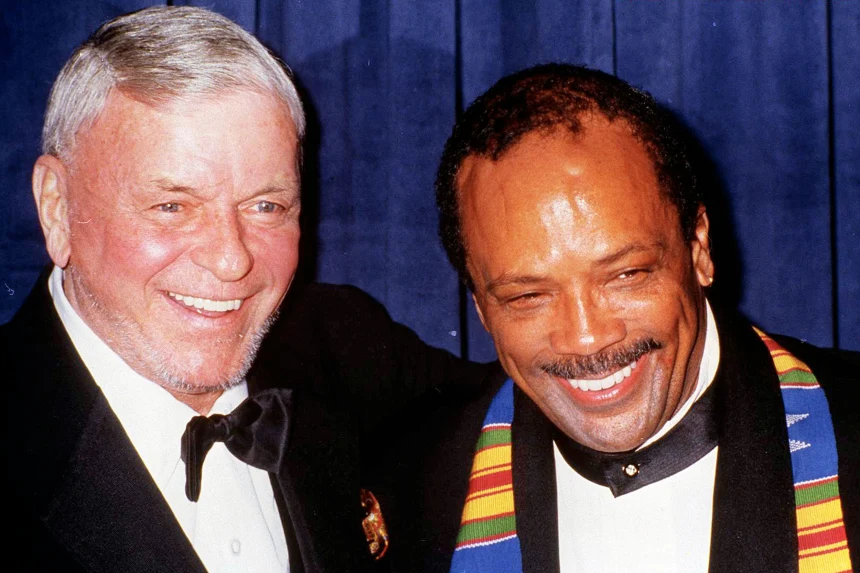
As the producer of three Jackson records—”Off the Wall,” “Thriller,” and “Bad”—that each sold tens of millions of copies and revolutionized pop culture, Jones achieved his commercial pinnacle.
With its electrifying fusion of genres, hit tunes, and MTV-ready visuals, “Thriller” shot to the top of the sales rankings. Despite the problematic aspects of Jackson’s personal life, it continues to be one of the best-selling albums of all time, marking a significant milestone.
Jones was a generous benefactor. He assisted in assembling an all-star cast of artists, including Bruce Springsteen, Tina Turner, Stevie Wonder, and Bob Dylan, for the 1985 charity song “We Are the World,” which was created to help collect money for Ethiopian famine victims.
Jones ventured into other media in the 1980s and 1990s, producing the popular television series “The Fresh Prince of Bel-Air,” which starred Will Smith, and Spielberg’s adaptation of Alice Walker’s book “The Color Purple” (1985). Additionally, he founded the music publication Vibe.
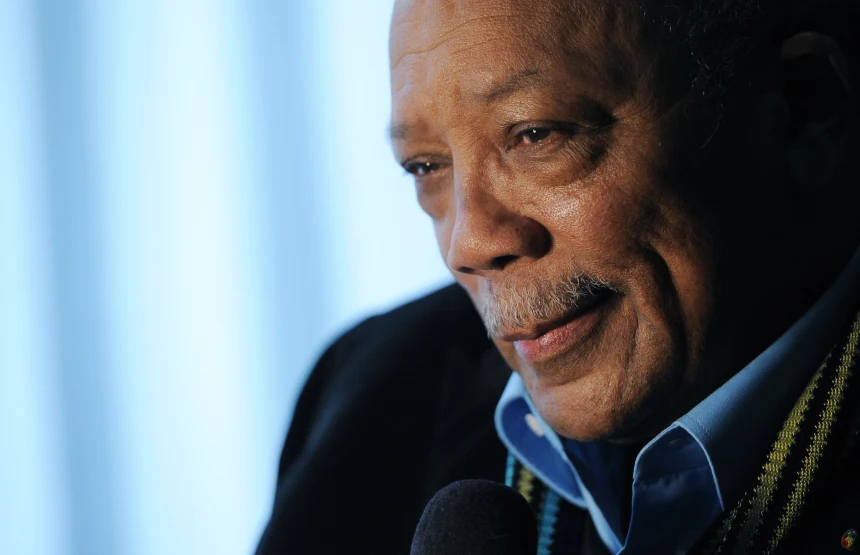
Jones, who was at that point a famous figure in the entertainment world and beyond, continued to be active in the arts and charitable endeavors in his senior years.
In 2001, he released a book titled “Q: The Autobiography of Quincy Jones.” In 2018, one of his daughters, the actress Rashida Jones, made a Netflix documentary about him.
